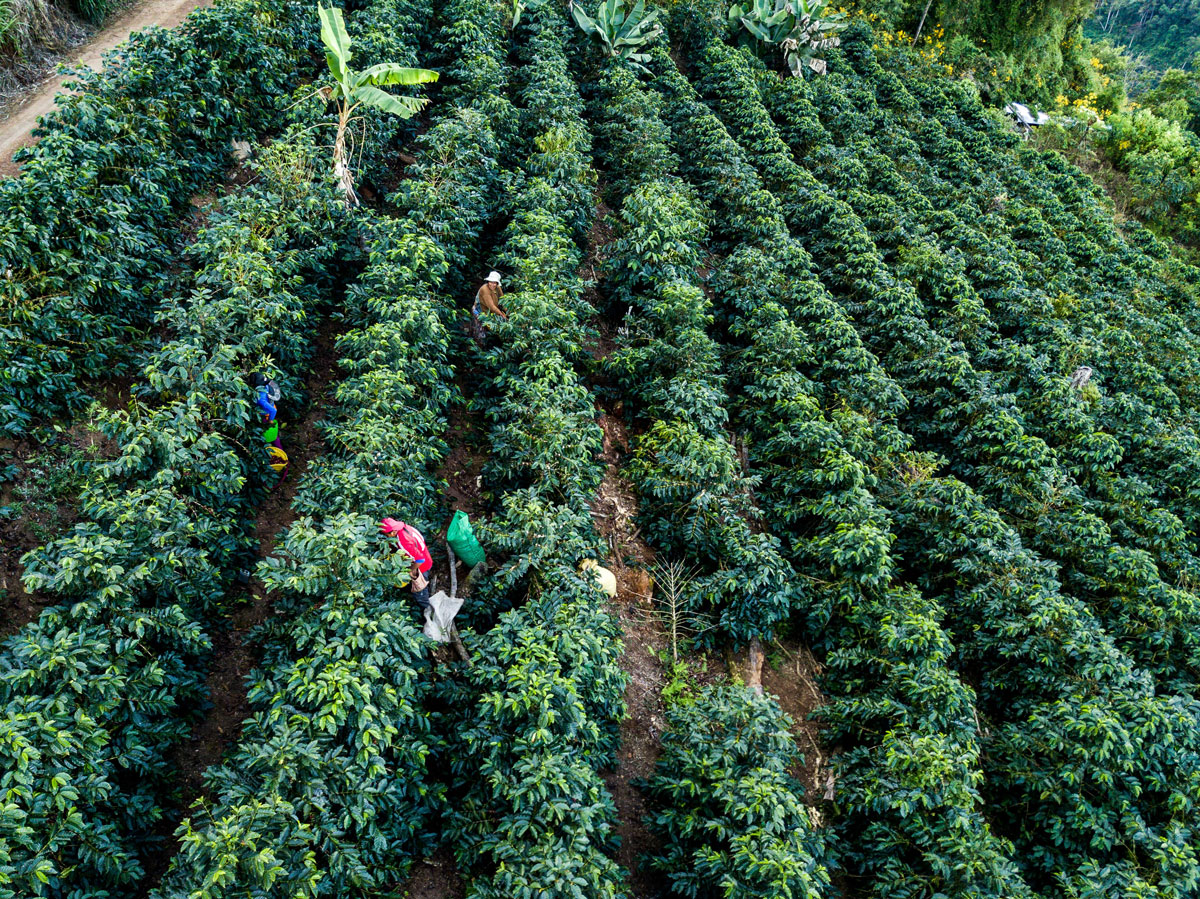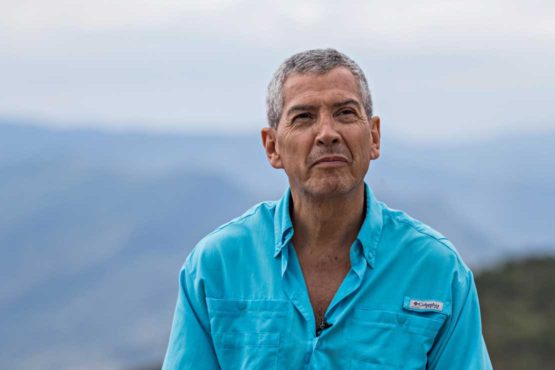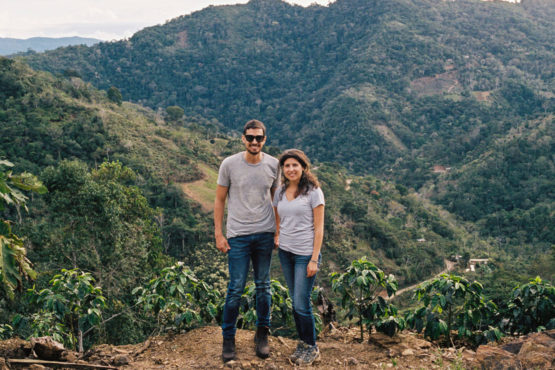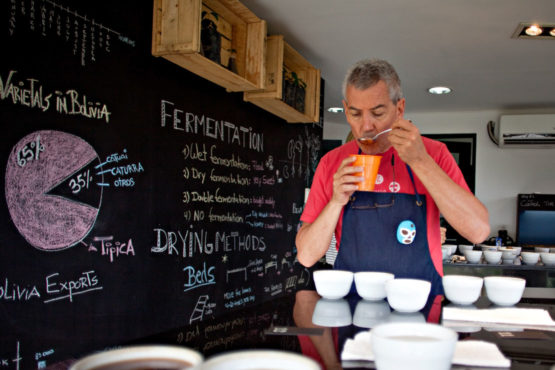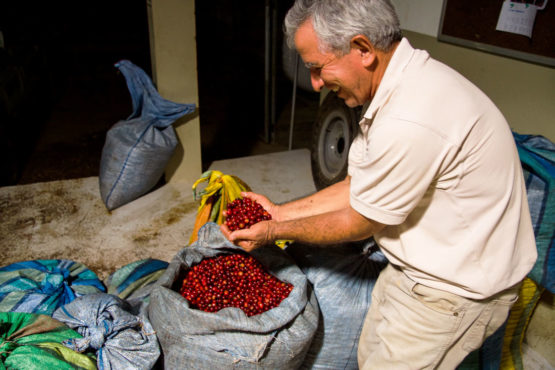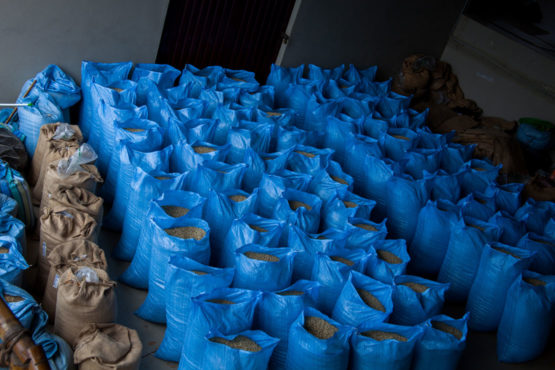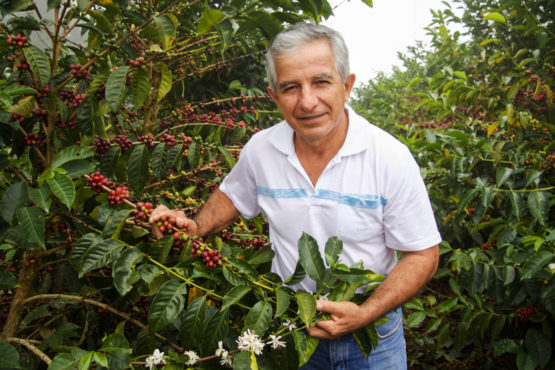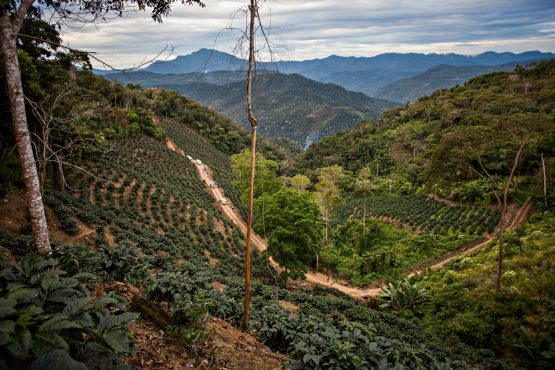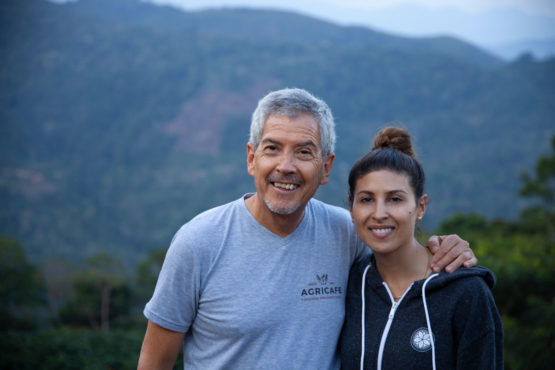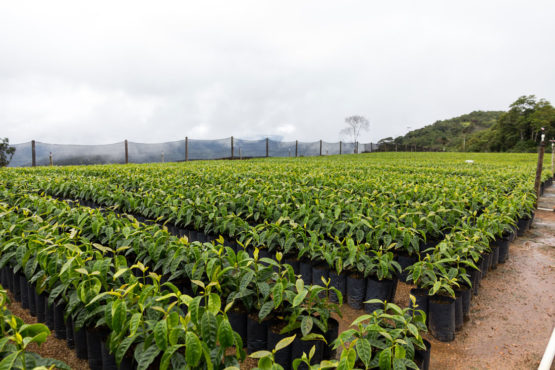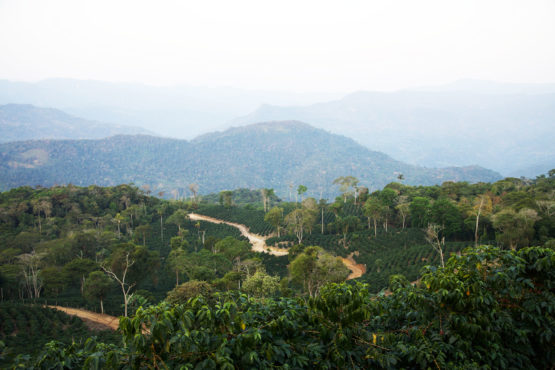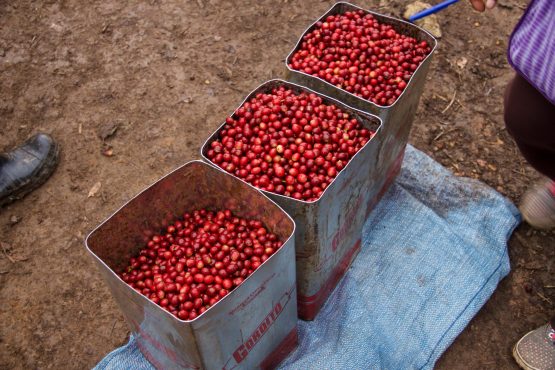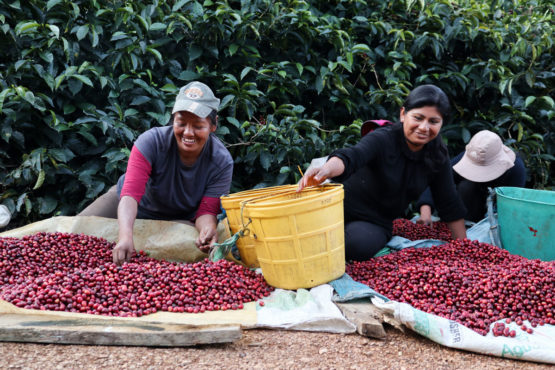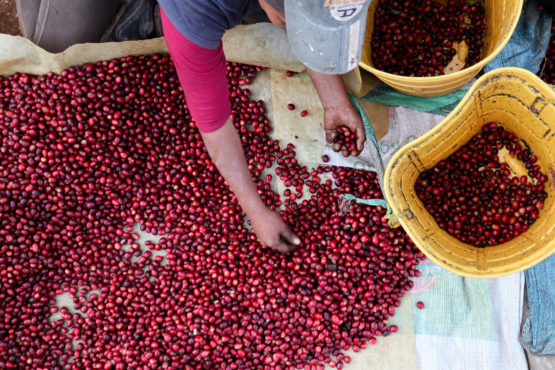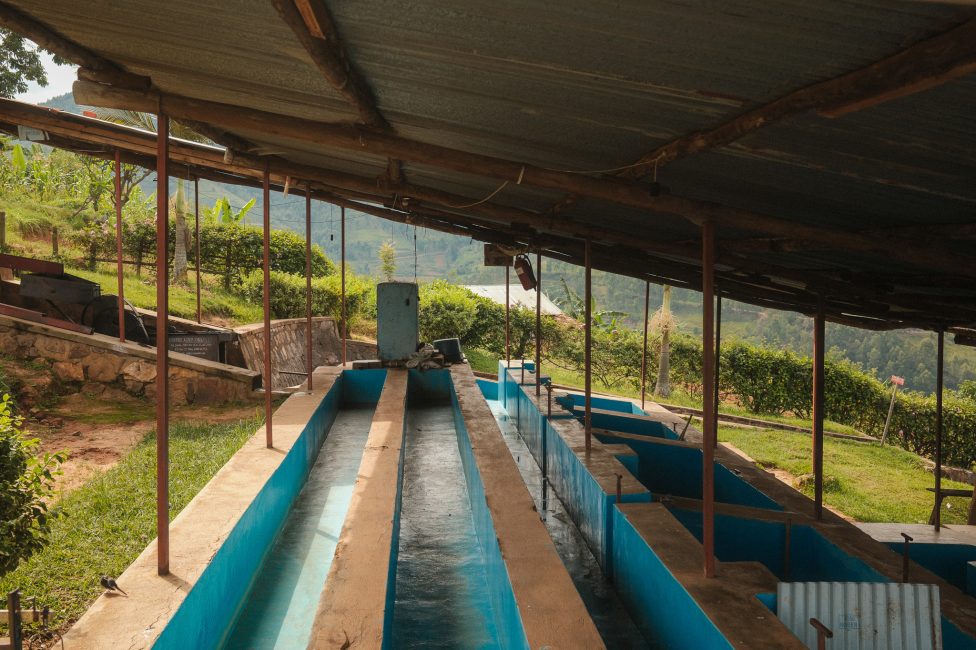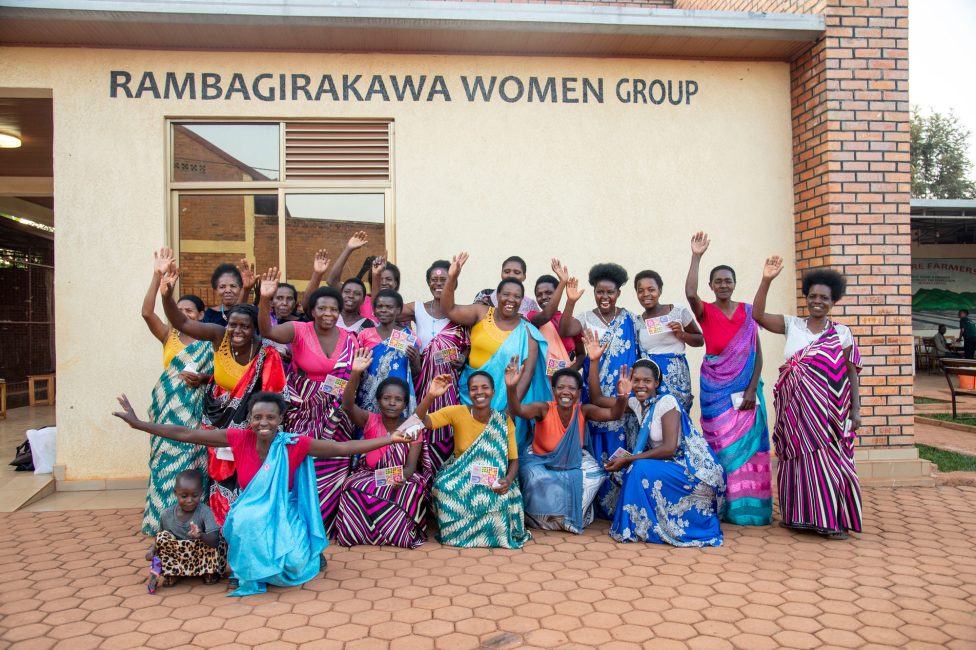Don Carlos
Red apple, cherry, and marmalade. Sweet and buttery body, with caramel, cocoa, and toasted hazelnut.
This very special 100% Caturra micro-lot comes from a farm called Don Carlos that is located in the colony of Bolinda which lies in a lush, steep mountain valley around 10 kilometres outside of the town of Caranavi. The colony of Bolinda was founded 52 years ago and was once known as ‘Bolivia Linda’ (‘Beautiful Bolivia’). Over the years this name was shortened to Bolinda, and it is now one of the larger settlements in the area.
Don Carlos is owned by the Rodriguez family, who also has a business called Agricafe, which produces coffee from its own farms and also sources quality micro-lots from small producers in the Yungas region.
This farm is named after one of Agricafe’s longest-standing employees, Don Carlos Mariaca, who has worked with Pedro Rodriguez, Agricafe’s founder, for nearly 3 decades. Don Carlos and Pedro Rodriguez were together at the beginning of specialty coffee in Bolivia. With help from Don Carlos, Pedro built a wet mill to process coffee in Caranavi. He then helped Pedro encourage local producers to deliver their coffee to the mill and and began educating them about the importance of selectively handpicking their cherries. Soon Agricafe was processing small micro-lots from many small local producers, and the results were outstanding, thanks to the unique combination of heirloom varieties, rich soil, and incredibly high altitudes.
However, despite gaining international recognition for its quality, coffee production in Bolivia began to rapidly decline over a very short period of time for many reasons. Some farmers switched to coca – grown for the drug trade and illegal to produce in Caranavi – because it provided them with a high year-round income. For those still in coffee, their yields were also declining as a result of ageing coffee plantations, unsophisticated farming techniques, and leaf rust. The combination of these factors resulted in the nation’s coffee production decline by more than half.
In 2012, as leaf rust started to obliterate the production in many small farms, Pedro and his family, with much encouragement from Don Carlos, decided to invest in their own plantations. This, they recognised, was critical in order to guarantee a minimum level of supply and ensure the future sustainability of their business. With the help of Don Carlos, they acquired land in Caranavi, near their Buena Vista mill and created their first farm, Finca La Linda. The farm Don Carlos was established one year later.
Today Agricafe has 12 farms and around 130 hectares of coffee under the banner of ‘Fincas Los Rodriguez’. Seven of these are in Caranavi, in the department of La Paz, and the remaining five are in Samaipata, in the department of Santa Cruz in Bolivia’s east.
The Rodriguez family’s approach to coffee production has been methodical, innovative and scientific. They consulted with Don Carlos (who has decades of experience working with small producers in the region)and leading specialty coffee agronomists from around the world to help them produce exceptional coffee and build sustainable and healthy farms. A wide range of varieties have been trialed, along with different farming techniques, to optimise quality and output. They have carefully documented their findings at every step of the way and continue to innovate and invest in improvements to produce the very best quality coffee they can.
The Rodriguez farms are some of the most organised and beautiful we have seen. Coffee is well spaced in neat rows and meticulously organised by variety, making picking and lot separation much easier to manage than on the more traditional farms in the region. The farms are vibrant, luscious and healthy, and produce exceptional quality and yields.
ABOUT DON CARLOS
Established in 2013, Don Carlos is the second farm the family has planted, and they used the learnings from their first experimental farm, La Linda, to make informed decisions on how to plant and manage the farm.
Don Carlos, like all other Rodriguez farms, is meticulously organised, and in this case, is planted under the careful attention of Señor Don Carlos himself. Situated at 1,546–1,650m above sea level, the farm is just over 18 hectares in total, of which just over one-third is under production.
Pedro and Don Carlos have trialed many varieties on this farm, including Geisha, Bourbon, Catuaí and Caturra. This particular lot is 100% Red Caturra.
Pedro and his family have invested a lot of time and effort into trying to make each of their plantations a ‘model’ farm that other producers in the area can learn from. Their learnings have also been shared with local producers through a training program they developed, Sol de la Mañana.
HOW THIS COFFEE WAS PROCESSED
At Don Carlos, Pedro and Carlos hired a talented group of pickers from the Bolinda community to carefully handpick the coffee during the harvest. These pickers are trained to select only the very ripest cherries, and multiple passes are made through the farm throughout the harvest to ensure the coffee is picked at its prime.
This coffee was carefully picked and processed on the same day at the Rodriguez family’s Buena Vista mill. After being weighed, it was carefully sorted by weight using water, and any floaters removed.
It was then pulped and then dry fermented without water for around 16.5 hours. The coffee was then dried slowly and carefully in a mechanical dryer for 60-75 hours with temperatures no higher than 40˚C. When the coffee reached 16% humidity it was rested for five hours in a silo, and then carefully dried until it reached 11.5% humidity.
Once the coffee was dry, it was transported to La Paz where it was rested before being milled at Agricafe’s dry mill, La Luna. At this state-of-the-art mill, the coffee is meticulously hulled and sorted using machinery and also a team of sorters who carefully sort the coffee by hand under UV and natural light. The mill is one of the cleanest and most impressive we have seen – you can read more about it here.
WANT TO KNOW MORE?
Read about Pedro Rodriguez journey in coffee here, and about Agricafe’s Sol de la Mañana program here and about Bolivian coffee more generally here.
